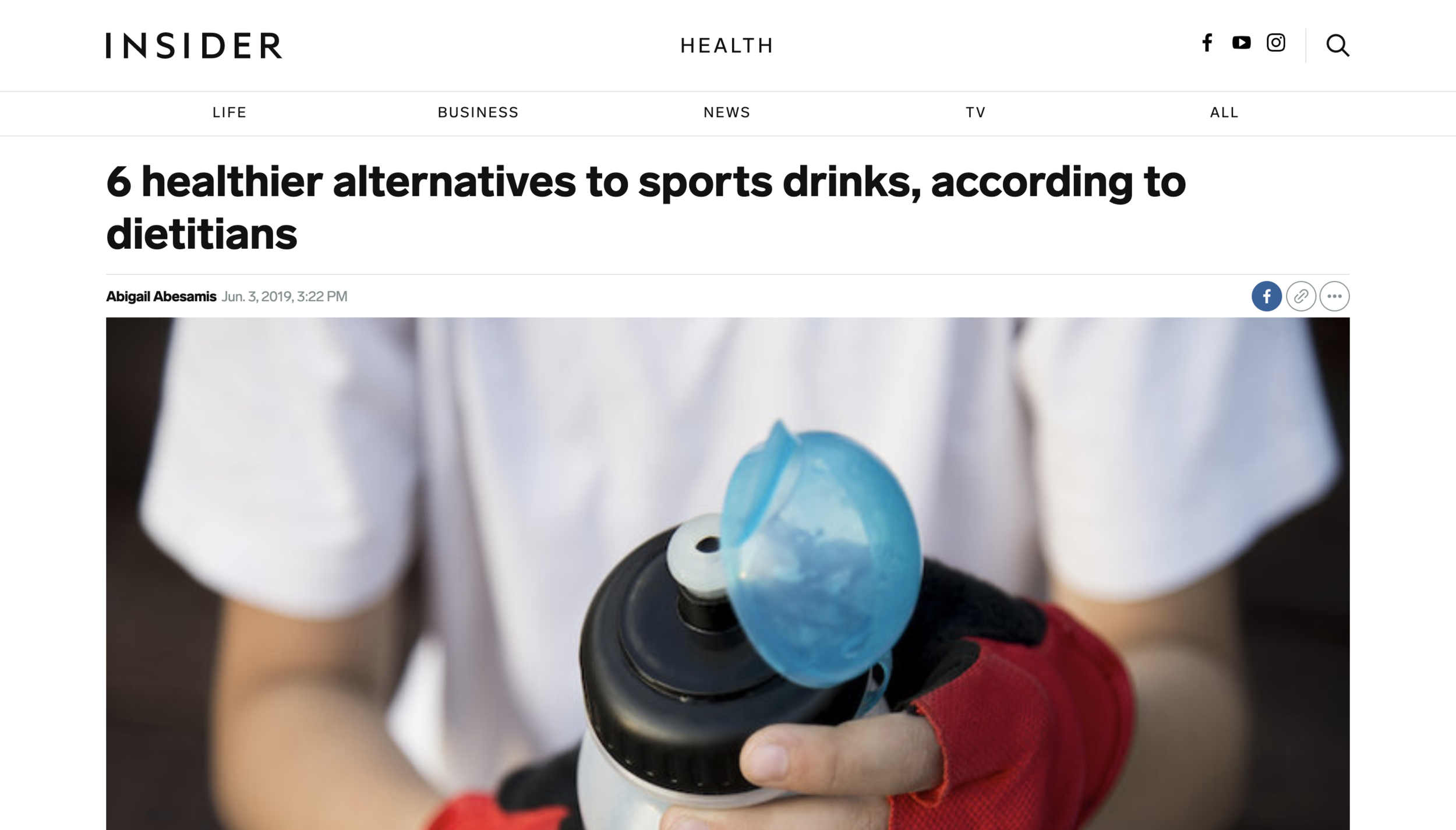6 Healthier Alternatives To Sports Drinks, According To Dietitians

Read original story on INSIDER
Despite what sports drink ads might make you think, you probably don't need to be chugging down a bottle of supercharged neon liquid during your average workout. Sports drinks' three key components (water, carbohydrates, and electrolytes) can be found elsewhere — and without the added calories and sugar.
INSIDER consulted two registered dietitians to get their recommendations for sports drink alternatives. Here's what they had to say:
Chocolate milk is this dietitian’s go-to post-workout recovery drink
Natalie Rizzo, a registered dietitian in New York City and author of " The No-Brainer Nutrition Guide For Every Runner," listed chocolate milk as a great sports drink alternative due to its 3-to-1 carb-to-protein ratio, which, she said, "helps replace carbohydrate stores and repair worn down muscles."
The childhood favorite also provides key electrolytes including calcium, potassium, sodium, and magnesium for refueling after a workout. Plus, Rizzo added, " research suggests that drinking fat-free milk after exercise replenishes lost electrolytes and rehydrates better than a sports drink or water."
Orange juice has electrolytes and antioxidants.
Jonathan Valdez, owner of Genki Nutrition and the spokesperson for New York State Academy of Nutrition and Dietetics, recommended drinking orange juice fortified with calcium and vitamin D.
"Not only does it have electrolytes like sports drinks," he said, "but it also has concentrated antioxidants such as hesperidin that may fight off high blood pressure and cognitive decline."
Coconut water naturally has some of the key components found in sports drinks.
All three of the key components in sports drinks are found naturally in coconut water. This hydrating beverage has potassium (an electrolyte), natural sugars, and water, Rizzo explained.
"The natural sugars help keep your energy levels high for exercise that lasts longer than an hour, and research points to the fact that it may be just as hydrating and cause less stomach distress than sports drinks," she said.
If you're exercising in the heat or for a long period of time, Rizzo recommends adding a dash of salt to coconut water to help replenish salt lost in sweat.
Drink tart cherry juice after a strength-training workout to reduce muscle pain.
"Montmorency tart cherry juice has long been valued for its high levels of plant nutrient compounds, including flavonoids and anthocyanin," Rizzo said.
Plus, some research suggests drinking tart cherry juice may reduce muscle pain and weakness after an intense strength-training session. Other research finds the beverage may minimize the symptoms of exercise-induced muscle damage after strength training.
You can make your own sports drink at home, without any artificial ingredients.
"If you like the idea of a sports drink, but not the artificial ingredients that go with it, you can make your own sports drink pretty simply at home," Rizzo said. Just mix coconut water, honey, sea salt, and a squeeze of lemon, lime, or 100% orange juice.
You can find her homemade sports drink recipes (all with four ingredients or less) here.
For an everyday exercise session, plain old water works just fine.
Nothing beats water if your aim is pure hydration, Valdez said. "Most Americans don't obtain adequate fluid intake, which can lead to constipation."
The Food and Nutrition Board, which is part of the National Academy of Medicine, says to let thirst be your guide when it comes to hydration, but its general recommendations for water intake from both food and liquids are 2.7 liters (91 ounces) for women and 3.7 liters (125 ounces) for men.





